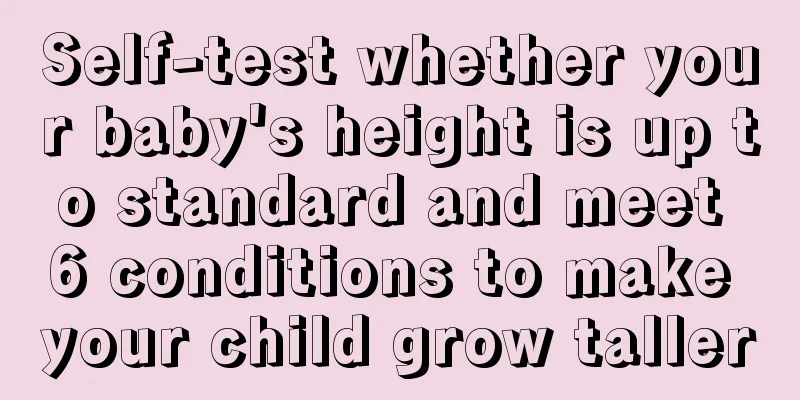Divorced families produce two kinds of children

|
The happiness of the family directly affects the growth of the children. If a couple lives a harmonious life, their children will have a calmer personality and will be able to grow up healthily. Children from divorced families are more likely to suffer from personality defects. After a couple divorces, the child’s personality development will be unbalanced due to being in a single-parent family for a long time. So, what are the two types of children that emerge from divorce? A single-parent family refers to a family with only one father or mother. Such families are not only the result of divorce, but also include those who have lost one parent due to illness or accident. The pressures and problems that families in the two situations face are different. Families in the former situation face more and more complicated problems. Single Parenthood Without Divorce: Loss, Grief, and Neglect Single-parent families mean the disappearance of complete families. The primary issue facing families who have lost a single parent due to illness or accident is dealing with loss and grief. One parent may allow grief to take over and be unable to direct their attention and affection to their children. At this time, children will face multiple psychological pressures of loss, grief and neglect. At this time, the single father or mother should come out of mourning as soon as possible and focus their attention and focus on the children who need more care and comfort, so that the children can regain a sense of security and minimize the feeling of loneliness and abandonment. Single Parents Due to Divorce: Three Psychological Issues that Parents Have to Deal with In a single-parent family that results from divorce, the first thing to deal with is the psychological problems of the single father/mother. Infant Attachment Parents after divorce will feel more lonely and isolated, and develop an infantile attachment to their children. They subconsciously fear that their children will leave them when they grow up, and the best way to prevent their children from leaving them is to make them unable to be independent. Therefore, such parents are likely to spoil their children, making them dependent on others for everything, and becoming people who cannot take care of themselves and cannot handle interpersonal relationships. Another reason why single parents spoil their children after divorce is that they feel that the divorce has hurt their children and that they owe their children something. Therefore, they subconsciously try to satisfy their children both emotionally and materially to make up for their mistakes and to alleviate their own sense of guilt. In view of the above-mentioned psychological characteristics, it is recommended to end the status of being single and in a single-parent family as soon as possible, establish a new emotional life and marriage, and reduce the psychological pressure on children caused by one's own subconscious needs. Subconscious sexual exploitation Parents who have been divorced for a long time may experience problems with sexual satisfaction. The normal sexual satisfaction that used to exist within the marriage is no longer there, and children become a subconscious sexual target. This kind of subconscious sexual exploitation is more likely to occur, especially in single-parent families consisting of opposite sexes, such as a single mother and son or a single father and daughter, where the parents consciously use their children to satisfy their own sexual desires or needs. Some families even have sexual incest as a result. Frustration and compensation psychology Divorce often results in a sense of psychological failure on the part of one of the parents. This frustration requires compensation. They cannot control their own marriage, but they can control their children; they cannot succeed in their marriage, but they can use their children's success to gain a sense of security and value, so they are eager to control their children and want their children to succeed. If conditions permit, they are more likely than ordinary parents to enroll their children in various early childhood education classes, training classes, and cram schools; and choose the best primary and secondary schools for their children so that they can get into the best universities. On the other hand, a failed marriage often makes them (especially single mothers) lose confidence in their future marriage or swear never to marry again, and instead pour all their hope and energy in life into their children. This makes children bear unbearable double pressure from an early age. Children who grow up under such a heavy burden either become overwhelmed and become tired of studying, skip classes, or become addicted to the Internet; or they develop behavioral or psychological problems of one kind or another while carrying the burden of their parents. Single parents from divorce: Four psychological problems that children may have Children in single-parent families tend to suffer more stress and have more psychological problems than their parents. Conflict of Inner Loyalties In the hearts of children, there are no perfect parents in the world. No matter what kind of people they are, they will love them unconditionally and accept them. This is loyalty to parents. However, parents after divorce often become strangers or enemies, denying or attacking each other. When one parent asks the child to oppose the other, the child faces a loyalty issue: if he does not oppose the other parent, it means betraying the parent who made the request; if he opposes the other parent, it means betraying the parent who is opposed. No matter what you do, you are doomed to fail. This makes the child's heart full of contradictions and pain. From inner tearing to loss and abandonment Before divorce, parents usually go through a long period of conflict and attack against each other. The harm suffered by children in this process is no less than that caused by divorce. Every conflict and quarrel is a tear in a child's heart. Inner conflict and internalization of aggression will breed indifference and violence in the child's heart. The departure of one parent means loss and abandonment, no matter what the honor or circumstances of the parents' divorce. Low self-esteem and guilt Parents’ divorce often makes children feel inferior. At the same time, children also worry about discrimination from others because of their dysfunctional families. Objectively, parents' divorce often casts doubt on themselves in the child's mind. The child will think that if he were lovable and valuable, his parents would not give up on him. But now that one of the parents has left him, it shows that he is bad and unlovable, so he may blame himself for his parents' divorce. Some parents even let their children make the decision on whether to divorce or not in order to reduce their own responsibilities. In such circumstances, divorced single-parent families often place a psychological burden on their children that can never be relieved, leaving them with an unforgivable sense of guilt and shame. In view of the above-mentioned psychological characteristics of children, single parents should tell themselves: Although they cannot be husband and wife, they will always be the father (mother) of the child. Let your child feel that his parents' love will always be with him as it has been in the past. In order not to undermine children's loyalty to their parents, parents should not slander each other in front of their children. Give the children the freedom to see each other or for the other party to visit the children. In terms of child support, in order to reduce the child’s sense of abandonment, the payee cannot maliciously delay or refuse to pay due to dissatisfaction with the other party. Insecurity Along with the sense of loss and abandonment comes the child’s inner insecurity. The complete family of the past no longer exists, and now people have become lonely. Economic and living conditions may not be as secure as before, and they may have to face the formation of a new reorganized family in the future. Expert Tips: Avoid being a single parent within marriage "Single-parent marriage" refers to the phenomenon that although a child lives in a two-parent family, he or she psychologically feels that he or she is the only parent. In such families, either one of the parents is having an affair, or one of the parents does not take care of the family. What single-parent families face is not only the lack of roles, but children in "single-parent families within marriage" also face the destruction of roles. |
<<: The baby wakes up more frequently at night
>>: Is it normal for a 10-year-old girl to have her period?
Recommend
What are the early education methods for 7 month old babies?
When the baby is seven months old, he can do some...
What are the causes of neonatal hepatitis syndrome?
What are the causes of neonatal hepatitis syndrom...
What should I do if my baby has one big eye and one small eye?
If a baby has one big eye and one small eye, pare...
What are the dangers of children eating sweets?
Most parents will be troubled by a problem, that ...
How many months does the baby start to smile?
How many months does a baby start to smile? Many ...
What are the symptoms of intestinal spasms in children?
As children grow up, they are bound to develop va...
Why does my baby always sweat on the back of his head?
Many parents will find that sweating on the back ...
Red rash on child
Children's body resistance is relatively low ...
What to do if your child is overweight and six solutions
Now that the quality of life is constantly improv...
Eight-month-old baby standing on tiptoes
Eight-month-old babies are generally able to stan...
What should I do if my child has diarrhea due to food poisoning? Teach you effective treatment methods!
If infants and young children have diarrhea due t...
The best age for women to have children
In modern society, many female friends always get...
What medicine is effective for baby’s sore throat?
Once the throat is inflamed, the patient may expe...
The child fell off the sofa
Children will fall when they are young. Because c...
Child falls on his head
Children love to play and often run and jump arou...









